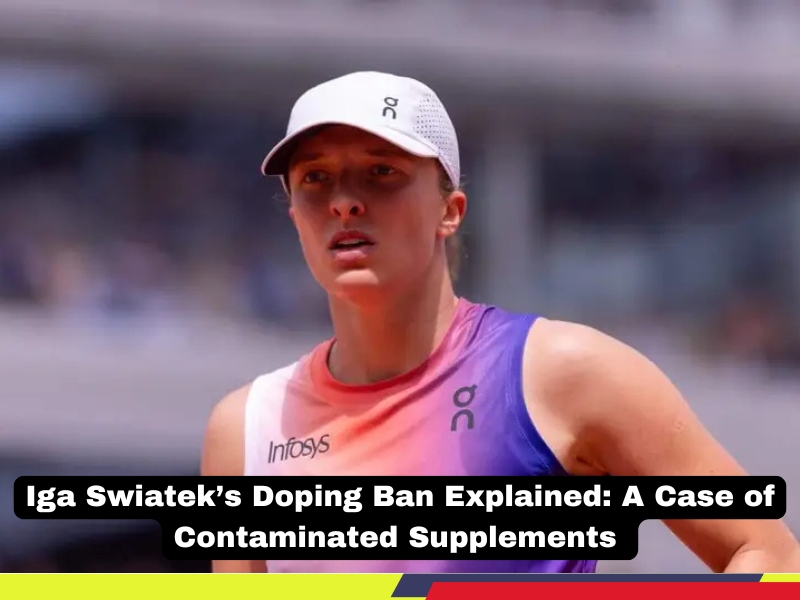Tennis star Iga Swiatek, the world No. 2 and a five-time Grand Slam champion, has been handed a one-month doping ban by the International Tennis Integrity Agency (ITIA). The ban, announced on November 27, came after Swiatek tested positive for trimetazidine (TMZ), a banned substance, in an out-of-competition sample taken ahead of the Cincinnati Open in August.
The Context of the Ban
Swiatek’s positive test revealed a trace amount of TMZ, a heart medication known for improving blood flow. Following the discovery, Swiatek provided evidence that the substance was unintentionally ingested through a melatonin supplement she used to manage jet lag. This supplement, which does not require a prescription in Poland and parts of the EU, was later confirmed to be contaminated with TMZ by multiple independent, WADA-accredited laboratories.
ITIA’s Ruling and Swiatek’s Response
The ITIA classified the incident as one of “No Significant Fault or Negligence,” emphasizing that the trace level of TMZ and its accidental presence in a common supplement did not suggest intentional doping.
Swiatek served 22 days of the suspension during the investigation and has only eight days remaining. As a result, she will be eligible to compete in the Australian Open in January 2024.
In her statement, Swiatek expressed relief that the investigation confirmed her lack of intent, thanking her team for their support during the challenging period.
Broader Implications
This case has reignited conversations around the complexities of doping regulations, particularly for athletes using over-the-counter medications or supplements. It highlights the need for vigilance, even when using seemingly innocuous products, and the importance of stringent independent testing.
Karen Moorhouse, ITIA’s chief executive, called the case “highly unusual” but praised the thorough investigation that established the source of contamination.
What’s Next for Swiatek?
Despite this setback, Swiatek remains a formidable presence in women’s tennis. Her eligibility for the Australian Open ensures she will have the opportunity to reclaim her dominance on the court while putting this chapter behind her.
As athletes continue to navigate the challenges of supplement use in professional sports, Swiatek’s case serves as a reminder of the importance of transparency and diligence in safeguarding both integrity and careers.




